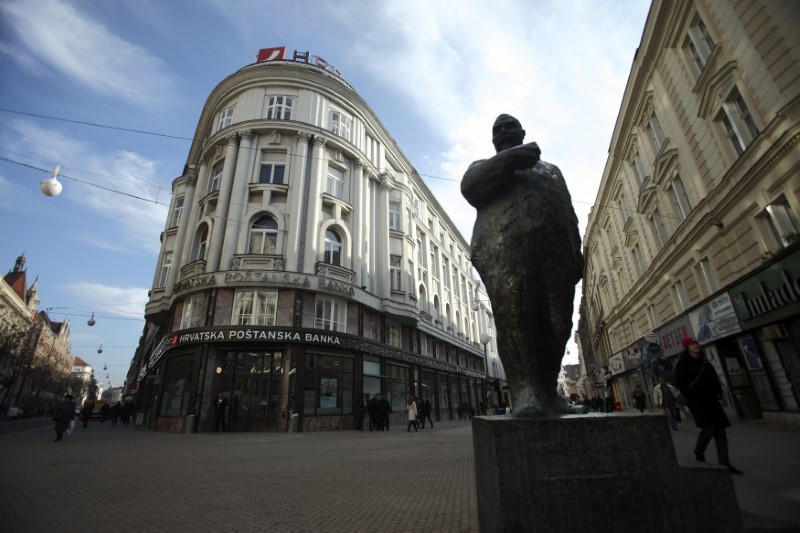 © Reuters. People walk past a branch of Croatian state-owned bank Hrvatska Postanska Banka in Zagreb
© Reuters. People walk past a branch of Croatian state-owned bank Hrvatska Postanska Banka in ZagrebZAGREB (Reuters) – The level of non-performing loans in the Croatian banking system fell to 11.37 percent at the end of 2017 from 13.8 percent a year earlier, the central bank said on Thursday.
Around 90 percent of Croatia’s banks are owned by parents from other European Union countries, notably Italy, Austria and Hungary.
The level of non-performing loans to companies fell at the end of last year to 22.3 percent from 28.3 percent a year before, while soured loans to households declined to 8.1 percent of the total from 10.3 percent at end-2016.
Construction firms have the highest level of non-performing loans.
Croatian banks had a total 245.9 billion kuna ($40.22 billion) of loans outstanding at the end of 2017, down from 261.2 billion kuna a year earlier. More than half, or 146.7 billion kuna, were denominated in the euro currency.
The level of non-performing loans in Croatia peaked at 17.34 percent in mid-2015 following six consecutive years of recession years for the youngest EU member between 2009 and 2014.
Fusion Media or anyone involved with Fusion Media will not accept any liability for loss or damage as a result of reliance on the information including data, quotes, charts and buy/sell signals contained within this website. Please be fully informed regarding the risks and costs associated with trading the financial markets, it is one of the riskiest investment forms possible.
Source: Investing.com




























